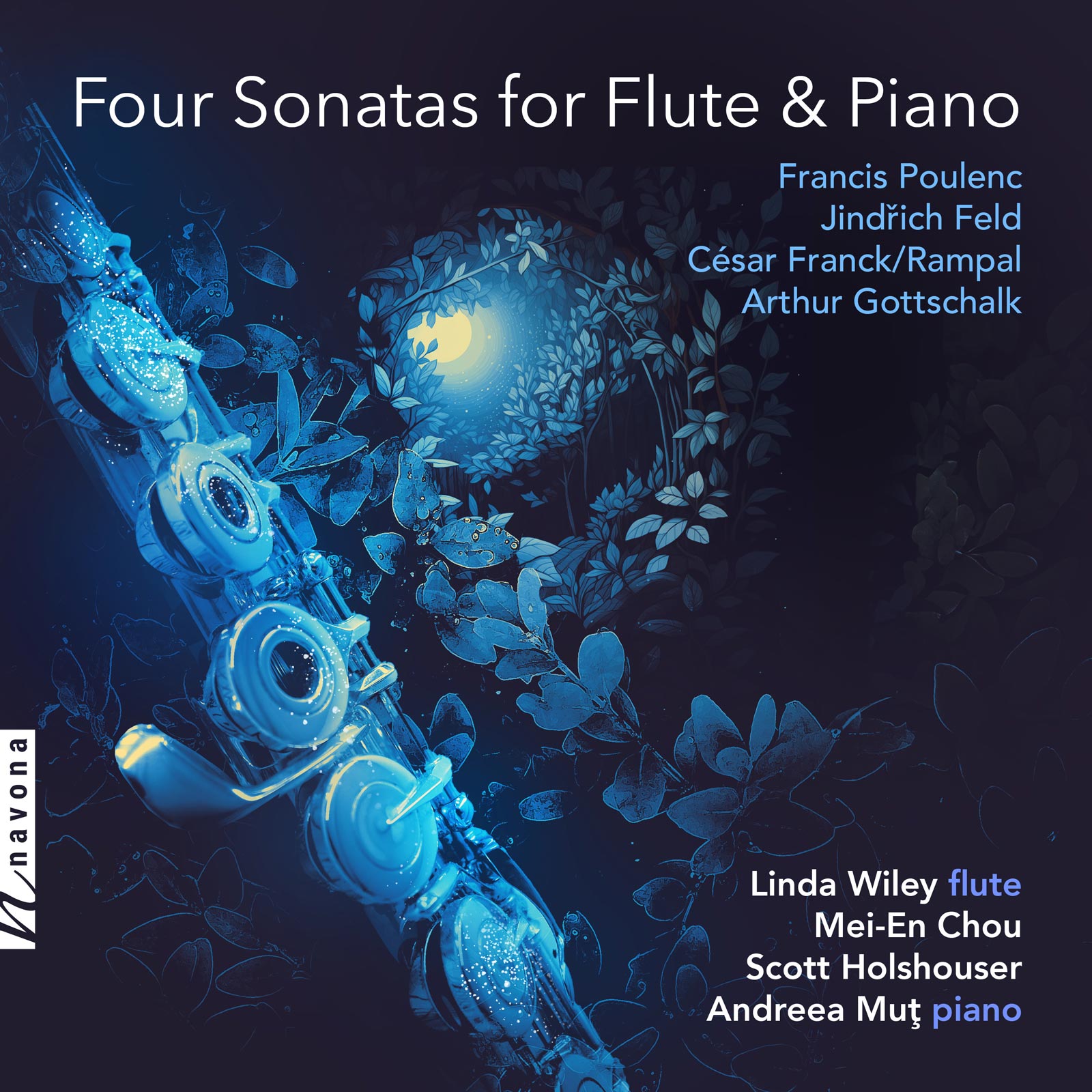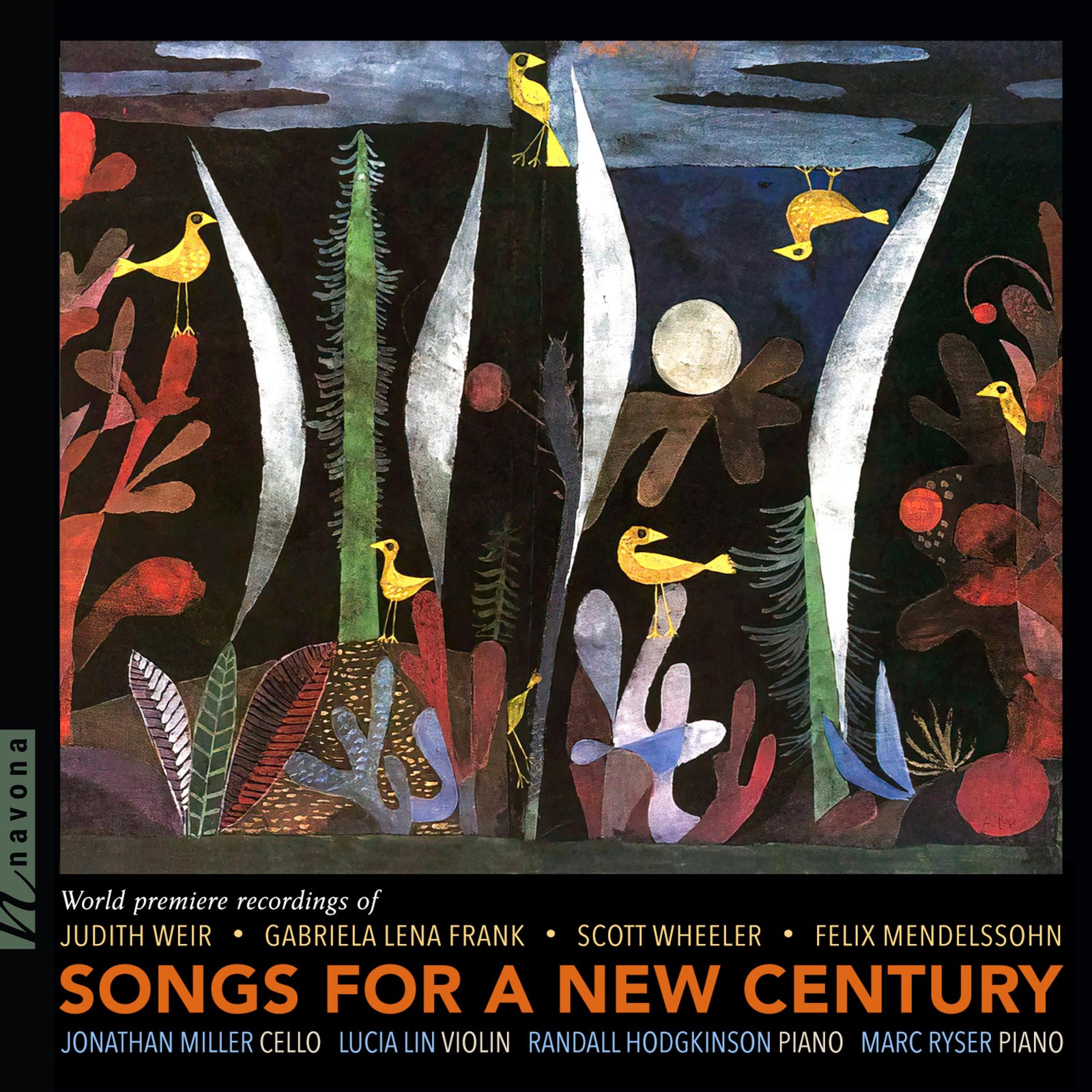Four Sonatas for Flute & Piano
Catalog #: NV6611
Release Date: April 5, 2024
21st CenturyRomanticChamberFlutePianoVirtuoso Linda Wiley performs four flute sonatas from 19th and 20th century composers on FOUR SONATAS FOR FLUTE AND PIANO. The album fulfills her aspiration to record pieces that are both challenging and also personally meaningful to her. These include Sonata For Flute And Piano by Francis Poulenc, Sonate Pour Flûte Et Piano by Jindřich Feld, Sonata In A Major by César Franck, and Recuerdos De Mexico, Sonata for Flute and Piano by Arthur Gottschalk. Many of the works share a connection to legendary French flutist Jean-Pierre Rampal; Wiley’s flute mentor Jan Cole studied under Rampal for five years, and Wiley is proud to carry on her musical lineage in this Navona Records release.
Songs for a New Century
Catalog #: NV6623
Release Date: May 3, 2024
21st CenturyRomanticChamberSolo InstrumentalCelloPianoViolinThe singing quality of string instruments ties together SONGS FOR A NEW CENTURY, a program featuring both world premiere recordings of new music commissioned for the artists and world premiere recordings of masterpieces by Mendelssohn. The program opens with a set of Mendelssohn’s Songs Without Words, beginning with the Opus 109 written by the composer for cello and piano. It continues with a set of arrangements for cello and piano, some recorded for the first time, by the 19th century cellist Alfredo Piatti, a personal friend of Mendelssohn’s upon whose cello Jonathan Miller plays. Gabriela Lena Frank’s Operetta for violin and cello, the composer writes, expands upon Mendelssohn’s concept of the “song without words,” creating opera without words that evokes scenes and characters through singing music for the duo of violin (Lucia Lin) and cello. Scott Wheeler’s second cello sonata, Songs Without Words, was inspired by Miller’s singing cello tone. Finally, Judith Weir’s Three Chorales for cello and piano meditate on religious poetry, departing from hymn texts –– and in the third Chorale, a melody from Hildegard of Bingen –– in a triptych that evokes the human condition.
Catalog
Filter By:
-
Romantic
- 20th Century
- 21st Century
- Classical
- Romantic
Filter By: Period -
Chamber
- Chamber
- Solo Instrumental
- Vocal Music
Filter By: Genre -
Instrumentation
- Cello
- Clarinet
- Electronic
- Flute
- Guitar
- Harp
- Large Ensemble
- Oboe
- Piano
- Saxophone
- String Orchestra
- String Quartet
- Viola
- Violin
- Voice
Filter By: Instrumentation -
Collection
Filter By: Collection
©2024 Navona Records. All rights reserved. Website by PARMA Recordings. | Privacy Policy


